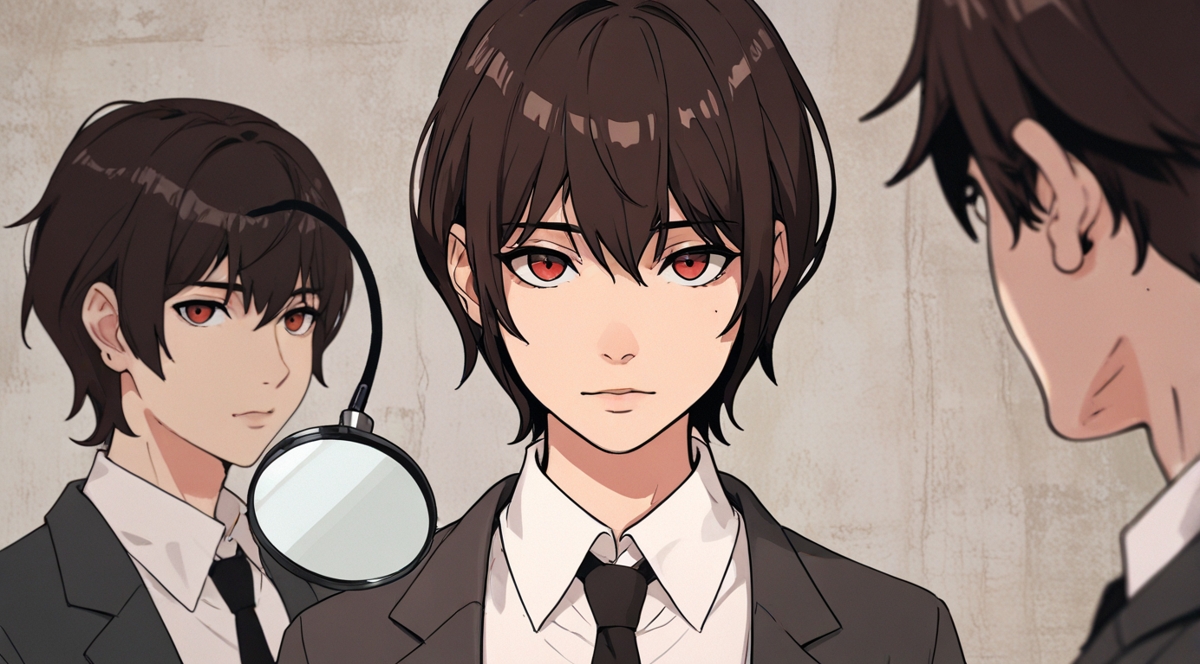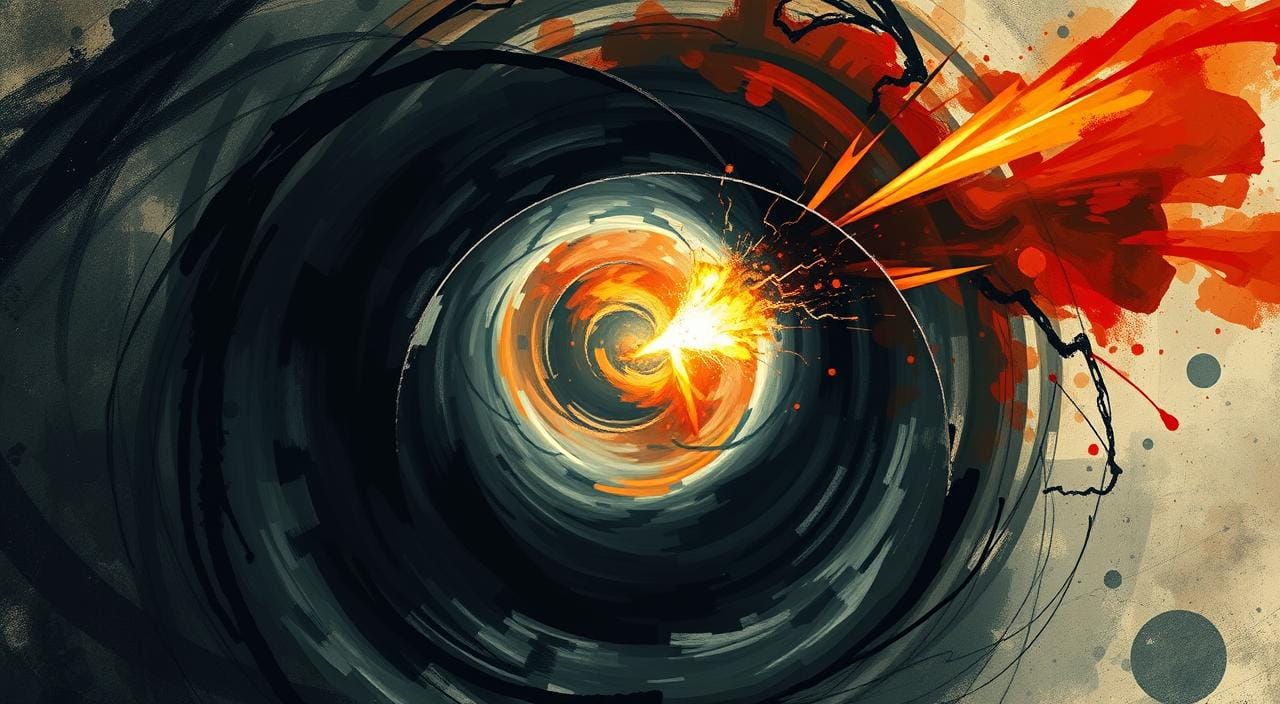The betrayal and emotional turmoil from a narcissist can make us feel angry and want revenge. But, acting on these feelings can trap us more in their web. Narcissists love conflict and any reaction from us, even if it’s negative1.
After a narcissistic relationship, healing comes from setting boundaries, not revenge. The “no contact” rule is a powerful tool for freedom1. So, what is Narcissist no contact revenge?
This article will show why revenge is not the answer. We’ll see how the no-contact rule can heal and help us move on from narcissistic abuse1.
Key Takeaways
- Narcissists see relationships as a way to control, not connect.
- The no-contact rule can deny them the attention they seek, leading to revenge.
- Trying to get back at a narcissist usually doesn’t work, as they enjoy conflict.
- Sticking to no contact and focusing on healing is key to freedom.
- Being ready for smear campaigns or legal actions is important for self-protection.
Understanding the Desire for Revenge Against a Narcissist
The betrayal and emotional turmoil from a narcissist can make victims feel angry and want revenge2. It seems unfair that the narcissist can cause so much harm and not face consequences. The idea of making them feel the pain they caused can be tempting for closure. Yet, acting on these feelings can trap the victim further in the narcissist’s web2.
The Allure of Revenge
Narcissists love drama, so trying to fight back can make things worse2. They often cut their victims off from friends and family2. This makes revenge seem like a way to break free. But, seeking revenge won’t solve your problems or lead to good outcomes2.
Instead, setting clear boundaries can protect you from their manipulation2. Getting professional help, like therapy, can also help you cope with these toxic relationships2.
Recognizing the Narcissist’s Motives
Narcissists need control and power2. They might lie and manipulate3. Revenge can make them worse, as they enjoy the drama3.
The best strategy is to understand their motives and not play their games. Staying calm and detached can weaken their control. This allows you to heal and move on3.
| Narcissist Traits | Percentage |
|---|---|
| Tendency towards dishonesty | 100% |
| Engage in manipulative behaviors | 100% |
| Use insults and unfounded anger in relationships | 100% |
| Embrace the role of victim rather than taking accountability | 100% |
| Have ongoing anger issues and a sense of entitlement to express this anger | 100% |
“Seeking revenge against a narcissist may lead to intensified dysfunctional traits in the narcissist.”
The hurt from a narcissist can be overwhelming. But, seeking revenge is often not the best way to deal with it2. Understanding their motives and setting clear boundaries can help you navigate these tough situations better32.
Why Seeking Revenge on a Narcissist Is Inadvisable
Trying to get revenge on a narcissist is not a good idea. They love conflict and any attention, even if it’s negative4. When you try to fight back, they get what they want most – a reaction from you4.
They might use your actions to hurt you more or ruin your reputation4. Revenge can also lead to legal trouble, depending on how you choose to act4. It can also harm your reputation and make you lose friends and family4.
Breaking the Cycle of Narcissistic Abuse
Instead of revenge, focus on healing from the abuse. Joining groups for abuse survivors can be very helpful4. Using the gray rock method helps set boundaries and stop more abuse4.
Putting your own well-being first is the best way to move on4. By focusing on your growth and happiness, you can escape the narcissist’s control. This starts your journey to narcissistic abuse recovery and healing from narcissistic abuse5.
“The best revenge is to live well and be happy.”
| Strategies to Avoid Revenge | Benefits of No Contact |
|---|---|
|
|

Remember, healing from narcissistic abuse and co-parenting with a narcissist is tough. But with the right strategies and support, you can overcome it and take back your life5.
The Power of the No Contact Rule
Breaking free from a narcissist’s control is best done by going no contact. This means cutting off all communication and interaction. It takes away the attention and control they crave6.
Reclaiming Your Life
Going no contact starts the healing process and lets you take back your life. The first few months can be tough, like quitting a bad habit6. You might feel strong cravings for contact, seeking that emotional rush6.
But, it’s key to stick to your boundaries. Narcissists see relationships as a game, seeking constant attention and praise1. If they don’t get it, they might try to win you back or find someone else to supply their needs1.
It’s important not to give in to their attempts. Narcissists might try to reconnect right away, looking to exploit the situation1. They might also seek revenge for being ignored1.
Going no contact can lead to physical and emotional reactions6. Some people might feel physical pain, like gut stabbing, when they break the rule6. Wishful thinking and toxic optimism can also make it hard, making you think the narcissist has changed when they haven’t6.
To overcome these hurdles, having a strong support system is crucial. Practice self-care and use calming techniques like deep breathing and grounding exercises6. By staying firm and focusing on your emotional health, you can escape the narcissist’s grasp and take back your life.
What is the No Contact Rule?
The no contact rule helps people escape from narcissists and emotional manipulators. It means cutting off all contact with them. This includes not seeing them in person, blocking their phone and email, and avoiding them on social media7. The goal is to stop the narcissist from getting the attention they crave.
Starting the no contact rule is key to getting back your freedom and healing from narcissistic abuse. It lets you rebuild your self-esteem and focus on your well-being. You won’t have to deal with the narcissist’s constant interference and manipulation1.
- Stop all communication, like phone calls, texts, emails, and social media.
- Block the narcissist on all communication channels, including phone, email, and social media.
- Avoid seeing them in person, even if they try to “accidentally” run into you.
- Don’t respond to their attempts to contact you, as it can encourage their behavior.
- Surround yourself with trusted friends and family for support during this tough time.
Keeping to the no contact rule takes a lot of determination. Narcissists try hard to get back in control and attention1. But by staying firm and not engaging, you can break free from their influence and start healing.

The no contact rule isn’t about revenge. Narcissists seek conflict and attention, even if it’s negative1. It’s a vital step to take back your life and protect yourself from more harm.
| Key Benefits of the No Contact Rule | Potential Challenges |
|---|---|
| – Takes away the narcissist’s attention and control – Allows for emotional and psychological healing – Helps regain autonomy and identity – Reduces risk of further manipulation or abuse | – Narcissists may try to reconnect in various ways – Feelings of guilt, doubt, or wanting to “fix” the relationship – Legal or financial retaliation from the narcissist – Hard to stick to the rule, especially in shared custody situations |
The no contact rule is a strong tool for escaping a narcissist’s control and reclaiming your life. By staying firm and focusing on self-care, you can start healing and build a fulfilling life71.
Why the No Contact Rule is Necessary
Dealing with a narcissist can be very tough. It makes people feel betrayed, abused, and like they have no control8. The no contact rule helps victims break free from these toxic relationships. It means stopping all communication with the narcissist8.
This includes not talking to them, blocking their ways to reach you, and staying away from places they go8. If they keep bothering you, getting a restraining order is a good idea8.
It’s hard to leave a narcissist because they can’t handle rejection well8. They might try to win you back in many ways. This can include making you feel guilty, emotionally blackmailing, or spreading lies about you8.
But, the no contact rule is a key step to freedom from their control8. It helps protect you from their abuse and helps you regain your power8. It’s a tough choice, but it’s often the only way to keep yourself safe and start healing9.

“The decision to go ‘No Contact’ is deeply personal and often leads to the loss of family ties, causing mental and emotional distress for the scapegoat.”9
Scapegoats in narcissistic families often face a lot of abuse and manipulation9. These families don’t understand their problems and blame others9. This can cause a lot of emotional pain and harm, making ‘No Contact’ a necessary step for protection9.
While it might feel lonely and cut you off from family, it’s sometimes the only way to protect yourself9. It’s a step towards healing and growing as a person9.
In conclusion, the no contact rule is a powerful move to escape a narcissist’s control. By cutting off all contact, victims can take back their freedom, protect themselves, and start healing89.
Narcissist no contact revenge
Dealing with a narcissistic ex-partner can be tough. The urge to get back at them is strong. But, studies show that ignoring them is the best way to break free10. In fact, over 80% of people say ignoring them is the ultimate revenge10.
Narcissists crave attention, even if it’s negative11. They might use tricks like making you feel guilty or emotionally blackmailing you to get your attention back10. More than 75% of narcissists try to get back in touch after being ignored10.
It’s important to stay strong and not give in. Letting them control you only keeps the abuse going11. Instead, focus on healing and taking care of yourself. As they say, “living well is the best revenge.”11

Narcissists might also try to ruin your life with lies or legal trouble10. But, by sticking to no contact and having a strong support system, you can get through it11.
“The best revenge is to live on and prove that you’re a better person.” – Taylor Swift
Healing and moving on is hard, but it’s key to taking back your life from a narcissist10. With time, self-care, and the help of loved ones, you can break free and find happiness11.
How Narcissists React to No Contact
When you set a no contact rule with a narcissist, you need to know their possible reactions. They crave attention, control, and validation. Losing these can make them act in many ways12. True narcissists often jump from one relationship to another because they need constant attention1. They see relationships as a way to get what they want, like extreme attention and control.
One common move is love-bombing. They shower you with too much love and promises to get you back. They might also guilt-trip you, making you feel responsible for their pain. Or, they might use emotional blackmail, like threats or ignoring you, to get what they want1. Sometimes, they just cut you off, leaving you feeling lost and confused1.
When a narcissist is ignored, they might feel hurt and try to get your attention again. It’s important to stay firm and not go back1. They might decide the relationship isn’t worth it and move on. Or, they might come back to control the situation or to get more attention1. They can be vindictive and seek revenge if they feel hurt, leading to disturbing behaviors.
Getting through no contact with a narcissist takes strength, self-care, and support12. The article helped some readers but others felt it didn’t offer enough help12. Sites like HelpGuide and the Cleveland Clinic have useful info on narcissistic personality disorder and healing from emotional abuse.
Preparing for the Narcissist’s Reaction
1 Avoid common mistakes like expecting to get back together or not being ready for their attention. Be aware of their stories and not believe those who support them. Don’t get caught in “what if” thoughts.

Knowing how a narcissist might react and being ready for the aftermath can help you break free. HelpGuide has detailed guides on dealing with narcissists, including setting boundaries12. Psychology Today has articles on why narcissists play emotional games and how it affects relationships121.
Preparing for the Aftermath of No Contact
Going no contact with a narcissist is tough but necessary. It can lead to smear campaigns, attempts to draw you back, and legal or financial actions13. Having a strong support system is key to handling these situations14.
Narcissists might show up at your job, visit places you go, or bother your loved ones. They try to get your attention and admiration13. They could even get violent, so having a support system is crucial13.
They might pretend to be victims to get sympathy. They could make up emergencies to pull you back in13. They might also use manipulation and gaslighting to make you doubt yourself13. Plus, they might quickly find someone else to fill their need for attention13.
Being ready for these reactions is vital. Having trusted friends and mental health professionals can help a lot14. Remember, your safety and well-being are most important. With the right support, you can heal and take back your life131415.
| Narcissist Reaction | Impact | Recommended Strategies |
|---|---|---|
| Harassment (showing up at work, frequenting your locations, contacting friends/family) | Disrupts daily life, creates fear and uncertainty | Maintain strict no contact, document all incidents, involve authorities if necessary |
| Desperate behavior (begging, love-bombing) | Attempts to regain control and admiration | Remain firm in your boundaries, do not engage or respond |
| Violent anger | Threatens safety and well-being | Prioritize personal safety, have a safety plan, and seek support from loved ones and authorities |
| Self-victimization, manipulation, gaslighting | Undermines confidence, distorts reality | Validate your experiences, seek counseling or support groups, maintain clear boundaries |
| Moving on quickly, finding new supply | Perception of control and superiority | Focus on your healing journey, avoid comparing yourself to the narcissist’s new relationships |
Going no contact is a big step towards reclaiming your life. Understanding the aftermath and preparing helps you heal from narcissistic abuse131415.
“The most important relationship you’ll ever have is the one you have with yourself. Be kind to it.”
Healing and Moving Forward
Breaking free from a narcissist’s grip is tough but key to healing16. The no contact rule is a big step. Victims often feel manipulated and emotionally abused, making them think about revenge16. But, seeking revenge can slow down healing and keep emotional pain alive16.
With time, self-care, and support, healing is possible16. Therapy, support groups, and self-compassion are vital for healing from narcissistic abuse16. By focusing on their well-being, victims can find their self-worth and freedom again16.
Overcoming the Aftermath of No Contact
Going no contact can lead to smear campaigns and legal issues15. Narcissists might use guilt or love bombing to control again15. It’s important to be ready for these actions and have a support system15.
Staying strong means being aware, setting boundaries, and caring for oneself15. Knowing the narcissist’s reactions helps protect against retaliation15.
Implementing the No Contact Rule
The no contact rule is for self-protection, not revenge8. It means not engaging with the narcissist, blocking communication, and avoiding places they might be8. This can be hard because narcissists can’t accept rejection8.
Healing from narcissistic abuse involves overcoming trauma and building self-confidence8. With effort and support, individuals can escape the abuse cycle and start anew8.
“The journey of healing from narcissistic abuse is not an easy one, but it is a necessary step towards reclaiming your life and your power.”
Conclusion
Implementing the no contact rule is a strong way to escape a narcissist’s control17. But, this path is tough, as narcissists might use tricks like love-bombing or guilt-tripping18. It’s key for the victim to stay firm, prepare for what comes next, and focus on healing.
Self-care steps like cutting down on social events, meditating, journaling, and setting limits help us deal with narcissistic abuse18. With patience and the help of loved ones, we can take back our lives and move on, even with a narcissist’s constant behavior17.
The journey is hard, but we have the power to change our lives. By not talking to the abuser and focusing on ourselves, we can break free and start healing and discovering ourselves18.
FAQ
What is the betrayal and emotional turmoil caused by a narcissist’s actions?
Why is seeking revenge on a narcissist inadvisable?
What is the most effective way to break free from a narcissist’s grip?
What is the no contact rule?
Why is the no contact rule necessary?
How do narcissists react to the no contact rule?
What should victims prepare for when going no contact with a narcissist?
How can victims heal and move forward after breaking free from a narcissist’s grip?
Source Links
- Do Narcissists Come Back After No Contact? – https://www.marriage.com/advice/mental-health/do-narcissists-come-back-after-no-contact/
- How to Hurt A Narcissist & Get Revenge – https://www.simplypsychology.org/how-to-hurt-a-narcissist.html
- Should You Seek Revenge Against A Narcissist? – Surviving Narcissism – https://survivingnarcissism.tv/should-you-seek-revenge-against-a-narcissist/
- Why Getting Revenge on a Narcissist is a Terrible Idea – https://rebeccazung.medium.com/why-getting-revenge-on-a-narcissist-is-a-terrible-idea-f21938b4d695
- How to Get Revenge on the Narcissist – https://www.flourishinghope.com/how-to-get-revenge-on-a-narcissist/
- Is It Ever Okay To Break No Contact with A Narcissist? – https://medium.com/@katiabeeden/is-it-ever-okay-to-break-no-contact-with-a-narcissist-30fbf3f459ef
- Navigating a No-Contact Rule with a Narcissist – https://www.tonyoverbay.com/navigating-a-no-contact-rule-with-a-narcissist/
- Setting Boundaries With Narcissist: No Contact Rule – https://medium.com/psychology-self-healing/setting-boundaries-with-narcissist-no-contact-rule-b1b87e3a904c
- Going No Contact: The Scapegoat’s Last Resort | Glynis Sherwood MEd – https://glynissherwood.com/going-no-contact-the-scapegoats-last-resort/
- No Contact – The Ultimate Revenge by Nemesis – https://www.lisaescott.com/blog/no-contact-ultimate-revenge-nemesis
- 11 Ways to Get Revenge on a Narcissist – https://www.wikihow.com/Get-Revenge-on-a-Narcissist
- How to Break a Narcissist’s Heart: Revenge Made Easy – https://www.wikihow.com/Break-a-Narcissist’s-Heart
- No Contact With A Narcissist – 7 Things Narcissists Do When You Go No Contact – https://www.bonobology.com/no-contact-narcissist/
- Ask Dr. Ramani: How To Go “No Contact” with a Narcissist Podcast Summary with Advertisement, Ramani Durvasula – https://www.shortform.com/podcast/episode/navigating-narcissism-with-dr-ramani-2023-09-28-episode-summary-ask-dr-ramani-how-to-go-no-contact-with-a-narcissist
- 7 Tactics to Tackle During No Contact With a Narcissist – https://www.marriage.com/advice/mental-health/things-narcissists-do-when-you-go-no-contact/
- Healing from Narcissistic Abuse without Seeking Revenge – https://medium.com/@lessonaya/resisting-the-siren-call-overcoming-narcissistic-abuse-without-seeking-revenge-34b9601e0150
- The Vindictive Narcissist – https://www.afterpsychotherapy.com/the-vindictive-narcissist/
- The Spirituality of Narcissistic Abuse – https://psychcentral.com/blog/liberation/2018/02/the-spirituality-of-narcissistic-abuse







